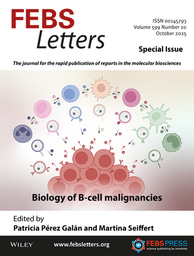Strengthening research integrity in Europe: Exploring the role of a pan-European body and engaging the research community

For decades, European institutions have faced significant challenges in effectively handling and addressing allegations and investigations of research misconduct. Some European countries have established national frameworks or agencies to support institutions to promote research integrity and handle misconduct. In other countries, institutions and researchers are left alone. (See examples of the different approaches in European countries). Although the European Code of Conduct for Research Integrity was developed to outline the principles of good research practices that should guide European researchers' work, there is no common “European” approach to handle allegations of misconduct. And the heterogeneity of systems can make investigating research misconduct in cross-border cases particularly challenging.
In all systems, the primary responsibility for dealing with allegations and investigations resides with the institutions where researchers work. Dealing with misconduct at institutional level may be hampered by conflicts of interest, fear of reputational damage and a lack of time and expertise. Committees in national bodies have the advantage of being more distant from local researchers, lowering the risk of conflicts of interest. But only a few countries have them.
A pan-European body for research integrity
To address these challenges and foster a more coherent approach to research integrity and misconduct in Europe, the EMBO Policy Programme explored the establishment of a permanent pan-European body for research integrity. Through a comprehensive analysis, three potential roles for a pan-European body were identified: investigative, advisory, and oversight. The possible advantages and disadvantages of each of these possible roles were also identified. A report of the project was published in June 2020.
A pan-European investigative body would conduct investigations on behalf of institutions, providing unbiased reports for institutions to decide on potential sanctions or consequences. This approach could lead to a consistent and expert handling of misconduct cases and prove beneficial in cross-border situations and for institutes that do not have relevant structures or experience. However, challenges such as institutions' reluctance to expose their problems externally, national and international laws on privacy and data protection, and the lack of familiarity with institutional structures could hinder its effectiveness.
Another option would be of an oversight body, ensuring that institutions conduct investigations following appropriate procedures. While this might incentivize institutions to conduct thorough investigations, compelling them to re-do investigations found lacking would pose difficulties.
The most widely accepted role for a pan-European body is an advisory one, providing support and guidance to institutions in all phases of an investigation. While not interfering with institutional processes, an advisory body could offer valuable advice on procedures, policies, training, and mediation in cross-border investigations. The main concern with this role is the potential for duplicating efforts if national advisory agencies exist and possible conflicts with their advice. A further concern in relation to all the three roles is whether they could be provided with sufficient capacity to handle a likely extremely high number of requests.
Regarding the structure and funding of a pan-European body, existing non-governmental organizations with experience in handling investigations, scientific organizations like EMBO or ENRIO, and European funders were considered possible options. However, their mandate would need to be expanded, and possible conflicts of interest might get in the way. Funding could come from member fees, support from funders, or governments.
While these potential roles and funding options have been explored, further analysis by dedicated working groups would be necessary. Questions related to the types of misconduct or bad practices to be addressed, the need for discipline-specific bodies, and institutional readiness to invest in such a body would also need to be clarified.
Providing support to researchers and institutions
Considering the challenges and uncertainties surrounding the establishment of a pan-European body, EMBO has decided to focus efforts on raising awareness among researchers and institutions about the importance of creating and maintaining an environment of attention to quality over quantity, respect, collaboration, open science, and honouring the highest scientific and ethical standards. By promoting explicit efforts in the above and in addressing allegations and misconduct, the research community can collectively uphold the integrity of scientific research in Europe.
These are some further initiatives EMBO has taken:
EMBO Fora on responsible research and Resources on research integrity
EMBO Policy organizes an annual series of five EMBO Fora dedicated to responsible research, previously referred to as Research Integrity Workshops. These events are carried out in collaboration with EMBO Members and are hosted at various scientific institutes throughout Europe. The purpose of these one-day gatherings is to facilitate discussions among senior post-docs and principal investigators (PIs) concerning research conduct and integrity. Participants delve into a range of topics, such as scientists’ responsibilities, data management, open science, scientific publishing, and conflicts of interest. The day after the workshop, EMBO staff meets with the management of the host institutes to discuss institutional policies that could support a positive research environment where researchers can do their best work. The sessions and subsequent discussions have had impact on the implementation of training or guidelines at various host institutes.
Resources for researchers and institutions
EMBO Policy extends its support to researchers and institutions through a dedicated webpage filled with valuable resources. This webpage aims to foster high-quality and responsible research practices among both individual researchers and institutions.
For institutions seeking guidance, we provide links to guidelines on how to establish crucial structures like Research Integrity Offices and Committees. These structures play a pivotal role in effectively addressing allegations of research misconduct, ensuring a more robust research environment.
Additionally, the webpage offers links to insightful guidelines to assist researchers and institutions in navigating the often-contentious issue of authorship attribution in publications. By supporting clarity on this matter, we aim to promote transparency and fair recognition of contributors.
With the advancement of technology, Electronic Lab Notebooks (ELNs) have emerged as efficient tools for researchers. Links are provided to reviews of different ELNs and to articles enlightening institutes and researchers about the benefits of adopting these digital notebooks over traditional paper ones. Embracing this digital solution not only enhances data security but also fosters good management practices.
In an era where data plays a central role, funders increasingly require researchers to develop data management plans. EMBO Policy addresses this need listing resources to help researchers create effective data management plans and implement responsible data management practices.
Conflicts of interest in research are also a threat to the quality of research. Recognizing that conflicts of interest can go beyond financial matters, the webpage directs researchers to resources that aid in recognizing, managing, and mitigating various forms of conflicts that may arise during research projects.
Moreover, we recognize the value of training and provide links to free online training programs in research integrity developed by universities and international institutions. These training opportunities further empower researchers with the knowledge and skills needed to uphold the highest standards of research.
Through this comprehensive set of resources, EMBO Policy stands as a supportive partner to researchers and institutions, working together to create an environment where responsible research flourish. In addition, EMBO Press has numerous initiatives and policies to foster responsible publishing practices.
Photo by The Jopwell Collection on Unsplash





Join the FEBS Network today
Joining the FEBS Network’s molecular life sciences community enables you to access special content on the site, present your profile, 'follow' contributors, 'comment' on and 'like' content, post your own content, and set up a tailored email digest for updates.